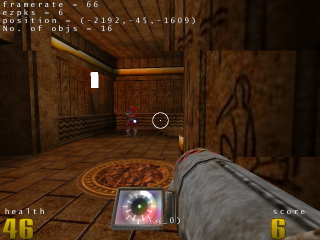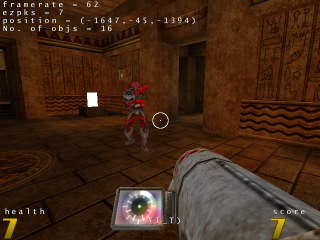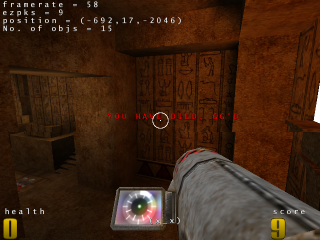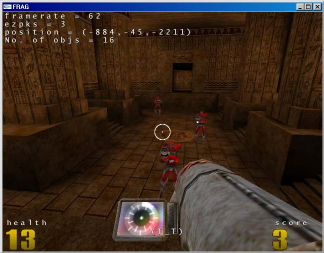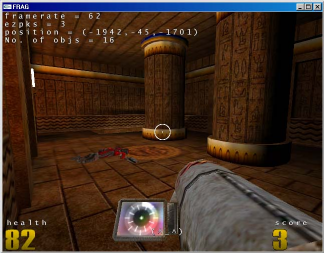Difference between revisions of "Frag"
Jump to navigation
Jump to search
DonStewart (talk | contribs) (upload screenshots) |
ConradParker (talk | contribs) (add BibTeX entry for Mun's thesis) |
||
| Line 41: | Line 41: | ||
[[Category:Applications]] |
[[Category:Applications]] |
||
| + | |||
| + | == BibTeX Entry == |
||
| + | |||
| + | <pre> |
||
| + | @mastersthesis{Frag, |
||
| + | author = {Mun Hon Cheong}, |
||
| + | title = {Functional Programming and 3D Games}, |
||
| + | year = {2005}, |
||
| + | month = {November}, |
||
| + | school = {University of New South Wales}, |
||
| + | address = {Sydney, Australia}, |
||
| + | abstract = {Games are commonly programmed in imperative languages. |
||
| + | Functional languages have been known to have benefits but have |
||
| + | rarely been used to program games. In this thesis we implement |
||
| + | a first person shooting game in Haskell and Yampa. The merits |
||
| + | of this approach are examined.} |
||
| + | } |
||
| + | </pre> |
||
Revision as of 08:10, 19 February 2007
Frag
Frag is a 3D first person shooting game written in Haskell, by Mun Hon Cheong. It is licensed under the GPL. The design and implementation of Frag is described in Mun's undergraduate thesis, Functional Programming and 3D Games.
Features
- Yampa, a domain-specific embedded language for the programming of hybrid systems that using the concepts of Functional Reactive Programming (FRP) was used to program the game entities.
- The Quake 3 BSP level format, Q3Map2, and the MD3 format for models and animations are used in this game.
- Sven Panne's OpenGL binding, HOpenGL is used to render graphics.
Requirements
- GHC 6.4 or greater, providing HOpenGL-2.0.
- OpenGL drivers that support the vertex array and multitexture OpenGL extensions
Download
The code is distributed via a darcs repository: darcs get http://www.cse.unsw.edu.au/~pls/repos/frag
darcs is the standard rcs of the Haskell community.
Contributions
Frag needs contributions from the community! Darcs send patches to Don Stewart.
Screenshots
BibTeX Entry
@mastersthesis{Frag,
author = {Mun Hon Cheong},
title = {Functional Programming and 3D Games},
year = {2005},
month = {November},
school = {University of New South Wales},
address = {Sydney, Australia},
abstract = {Games are commonly programmed in imperative languages.
Functional languages have been known to have benefits but have
rarely been used to program games. In this thesis we implement
a first person shooting game in Haskell and Yampa. The merits
of this approach are examined.}
}
